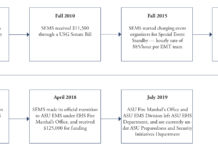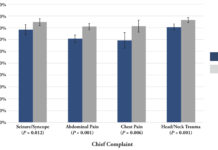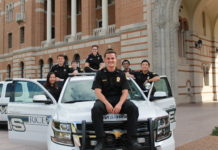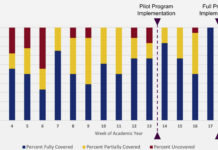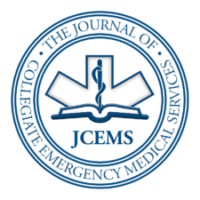From Volunteer Student Organization to Official Division of a University Department
Student Emergency Medical Services (SEMS) at Arizona State University (ASU) began as a student-run volunteer organization in 2008.
Checklists Improve EMS Documentation
Alatis et al. found that a quality improvement (QI) project focused on documentation via checklists can improve the inclusion of key documentation criteria on electronic patient care reports (ePCRs) in a collegiate-based EMS system.
Interview with Lisa Basgall
JCEMS offers an exclusive interview with Lisa Basgall, EMS Director of Rice University EMS – 2019 Collegiate EMS Organization of the Year.
Inside the JCEMS Team
JCEMS is proud to be managed by a team of all volunteers that includes recognized experts in prehospital emergency care as well as student-leaders. Here we offer an inside look at the organizational structure of JCEMS and share opportunities to join the team.
Integrating Continuing Education Credits to a Collegiate EMS Training Model
The University of Pennsylvania Medical Emergency Response Team implemented a program to integrate continuing medical education (CME) credits into their training curriculum.
Interview with Paul Halliday
JCEMS offers an exclusive interview with Case Western Reserve University (CWRU) EMS's former chief and innovative leader.
Development of an Excel-Based Software Solution to Collegiate EMS Shift Scheduling & Placement
The University of Pennsylvania Medical Emergency Response Team created a Microsoft Excel-based software system to schedule providers for shift coverage.
Free of Charge: Analysis of an Urban Collegiate EMS Agency
Herman et al. conducted a retrospective review of itemized billing forms from Tulane EMS. The financial costs saved by students due to the availability of Tulane EMS were estimated.
Johns Hopkins Emergency Response Organization (HERO) lays the groundwork for inter-facility transport
Under the leadership of Christopher Wend (former Captain) and Leela Herbst (current Captain), HERO prepares for inter-facility transports.
Illinois Institute of Technology creates on-campus EMS organization with initial focus on community CPR/AED...
Current student Alexandra Montgomery leads the charge to develop a new campus EMS organization.





